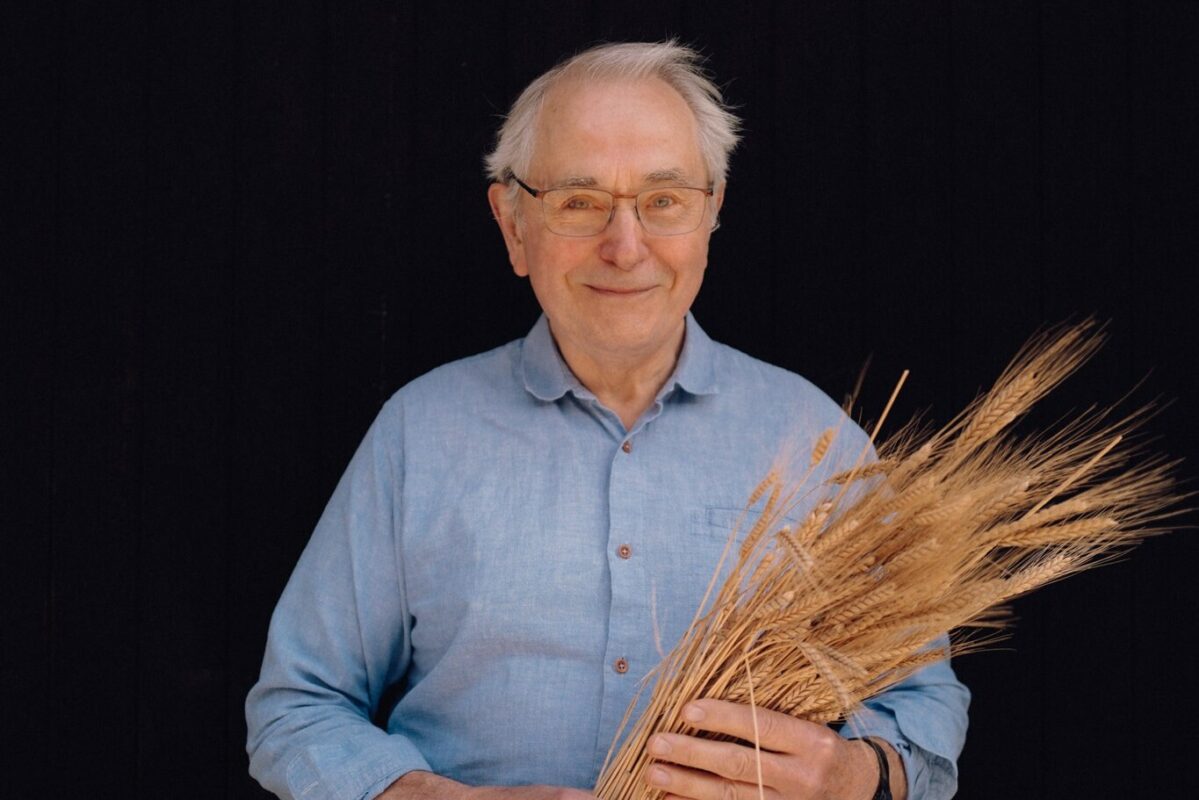“I am afraid my mental processes are rather like a slow fermentation. If you are patient enough, something good might come out of it,” laughs Andrew Whitley (pictured above).
The truth is, on the subject of bread, there are few more knowledgeable. Baker, activist, author and godfather of the Real Bread Campaign, Whitley opened his first sourdough bakery in Cumbria, back in 1976.
Almost five decades later, he is today at the helm of researches and grows grain, mills flour and shares vital fermentation know–how, with the common purposes of healthy nourishment, food justice and ecological responsibility.
To do so, they need to raise £3m. “It is a massive deal, particularly for someone who’s never been very good at fundraising,” says Whitley. Equity, ecological responsibility, diversity and local control are the four purposes, and they are more likely to emerge from what scientist, writer and farmer Chris Smaje calls a ‘small farm future’ than from any further concentration of power within farming, baking and retailing.
The current system of farming and food production is clearly running out of road. “We can’t just chip away at some of the worst aspects of it and hope for the best,” says Whitley. “We need to develop an example of a grain and bread network that genuinely looks more likely to work in the future.”
My children used to look at their watches whenever the f-word was used – ‘f’ for fermentation, that is
He mentions, as one inspiring example, Kimberley Bell of UK Grain Lab and the Small Food Bakery in Nottingham. She is working across all areas of food production and retailing, he says, putting as much effort into understanding how to get bread into the right communities on an equitable basis as she does into the bread itself. “She appreciates that we have to build demand, not just increase supply,” says Whitley, “and she works in a non-hierarchical, democratic, participatory system that makes sure everybody is heard.
“I suspect I am perceived as some weird purist in all this,” he adds, “but breaking down elitism with respect to sourdough bread is something we are all enjoined to work out how to do. I have been trying for nearly 50 years, but we need to work harder to ensure our bread gets to the places where it can make the most difference to people’s lives. That’s the challenge,” he says. “There are no shortcuts. Good bread. It’s the start of life.”
Robert Penn is the author of Slow Rise: A Bread-Making Adventure
Main image: founder of Scotland The Bread, Andrew Whitley, photographed by Simon Hird
All photography: Simon Hird
Be part of the solution
Positive News is helping more people than ever to get a balanced and uplifting view of the world. While doom and gloom dominates other news outlets, our solutions journalism exists to support your wellbeing and empower you to make a difference towards a better future.
But our reporting has a cost and, as an independent, not-for-profit media organisation, we rely on the financial backing of our readers. If you value what we do and can afford to, please get behind our team with a regular or one-off contribution.
Give once from just £1, or join 1,400+ others who contribute an average of £3 or more per month. You’ll be directly funding the production and sharing of our stories – helping our solutions journalism to benefit many more people.
Join our community today, and together, we’ll change the news for good.

